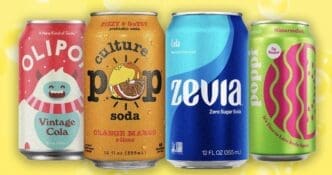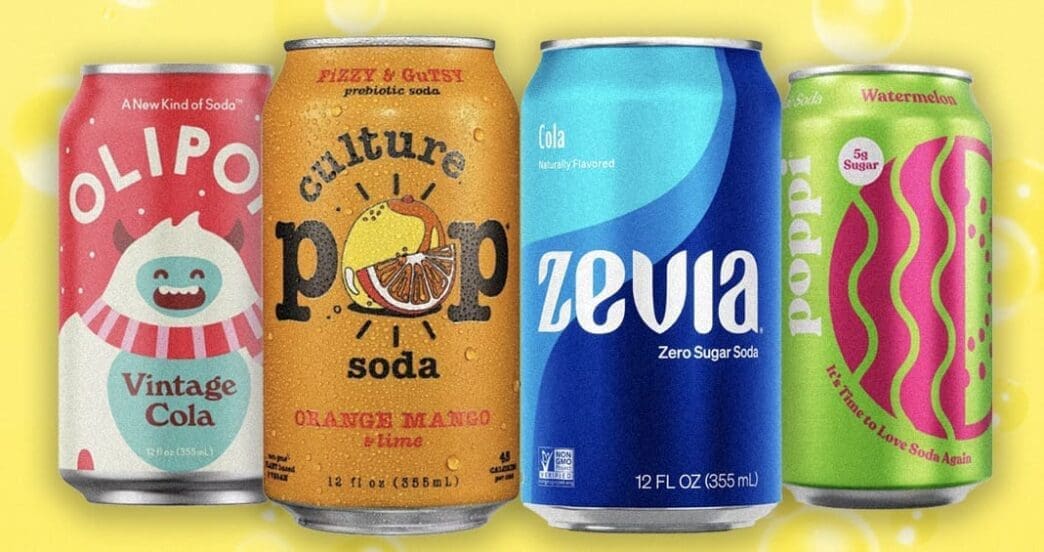In the quest to quench our thirst without the sugar rush of traditional sodas, a new generation of drinks has popped up on the scene. Brands like Poppi and Olipop have made their mark by claiming to be healthier alternatives to the sugar-laden sodas we’re used to. But how do these “modern sodas” actually stack up against their traditional counterparts?
Traditional sodas, such as Coke, are notorious for their high sugar content, with a single can exceeding the American Heart Association’s daily sugar recommendation. Meanwhile, diet sodas, although sugar-free, often contain artificial sweeteners like aspartame, which some people prefer to avoid due to health concerns. This has paved the way for new soda brands that promise a healthier alternative by incorporating elements like probiotics and natural sweeteners. Sales for these drinks have surged, prompting major retailers to set up dedicated sections for them.
According to Chris Mohr, a dietitian and fitness advisor, these modern sodas generally contain less sugar and fewer calories than the classics like Coke or Sprite. While they still offer the bubbly refreshment people crave, the crucial difference lies in the sweeteners used, which are derived from natural sources such as monk fruit and stevia. These are favored over artificial sweeteners, offering a more “natural” taste and eliminating calories that could spike blood sugar levels.
Looking at ingredients, many of these sodas, including brands like Poppi, use apple cider vinegar and inulin, a type of soluble fiber, as their calling cards. These components are known for their potential benefits in maintaining gut health. Apple cider vinegar, for instance, is touted for aiding digestion, while inulin serves as a prebiotic fiber that supports beneficial gut bacteria. However, experts caution that the quantities found in a single can may not be sufficient to deliver notable benefits without consuming several cans over a sustained period.
Each brand has its unique selling points. Poppi, for example, is marketed as a gut-friendly soda with fiber and apple cider vinegar. Despite its vibrant presentation and low calorie count, some argue that the health benefits may be overstated. In contrast, Culture Pop offers a probiotic twist with its use of Bacillus subtilis, claiming to boost digestion and immunity. However, it’s higher in sugar compared to others.
Olipop takes a different route, emphasizing its OLISmart blend, a concoction of plant fibers and prebiotics designed to nourish a diverse array of gut bacteria. Although rich in fiber, it does carry more sodium, which some may find concerning. Zevia stands out as the only calorie-free option, sweetened solely with stevia. Lacking added ingredients like fiber or probiotics, Zevia focuses purely on providing a sugar-free soda experience.
Despite their health-centric marketing, dietitians like Renee Korczak advise caution. Consuming these fiber-rich sodas too quickly can lead to digestive discomfort for some. She recommends gradually introducing them into one’s diet. Furthermore, these drinks should not replace regular water consumption or serve as a major dietary staple. Mohr also points out the cost factor, noting that while a six-pack of Coke is relatively affordable, these modern sodas can be significantly pricier, making them an occasional treat rather than an everyday beverage.
The emergence of modern sodas presents an interesting dilemma for health-conscious consumers. While they do offer some appealing features, such as lower sugar content and added prebiotics, their health benefits may not live up to the hype without regular, sustained consumption. They provide a refreshing alternative to traditional sodas but are best enjoyed in moderation and as part of a balanced diet. Ultimately, the choice comes down to taste preferences and one’s health goals.
Source: Yahoo







